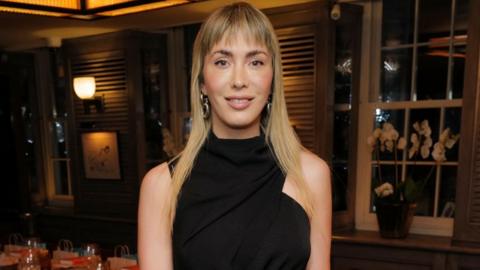Local drug dealer Liam - played by Jake Dunn - is an intoxicating influence on Byron, embarking on an underage relationship with this young wannabee while also enticing the youngster into selling sex. Grooming and child abuse are a constant backdrop.
"Essentially, he's Byron's pimp," explains Dunn.
As can be the case in such instances, Byron is attracted to what he sees as someone with power, his own flat and independence - something he wants himself.
"He [Liam] is very enigmatic," explains Dunn.
"They [he and Byron] actually share a very similar back story. They sort of become magnetised to each other. [It's like] watching an unstoppable force meet an immovable object.
"Part of Liam's obsession and desire towards Byron is because Byron reminds Liam of Liam at that age."
Dunn, who hails from Nottingham himself, based Liam "off of two people I knew from Nottingham and a lad from Derby who really stuck in my head when I was a teenager, their voices and the way they acted".
He adds: "At times Liam does feel very vulnerable in a strange way, and then he's also really hardened. And I think when you're working class from a place with no prospects, you're a survivalist and you'll do anything.
"He looks out for himself in a way that is really scary and coercive."
The drama also doesn't shy away from a serious crime committed by Liam and Byron (which led to serious consequences for Lees in real life as a teenager).
